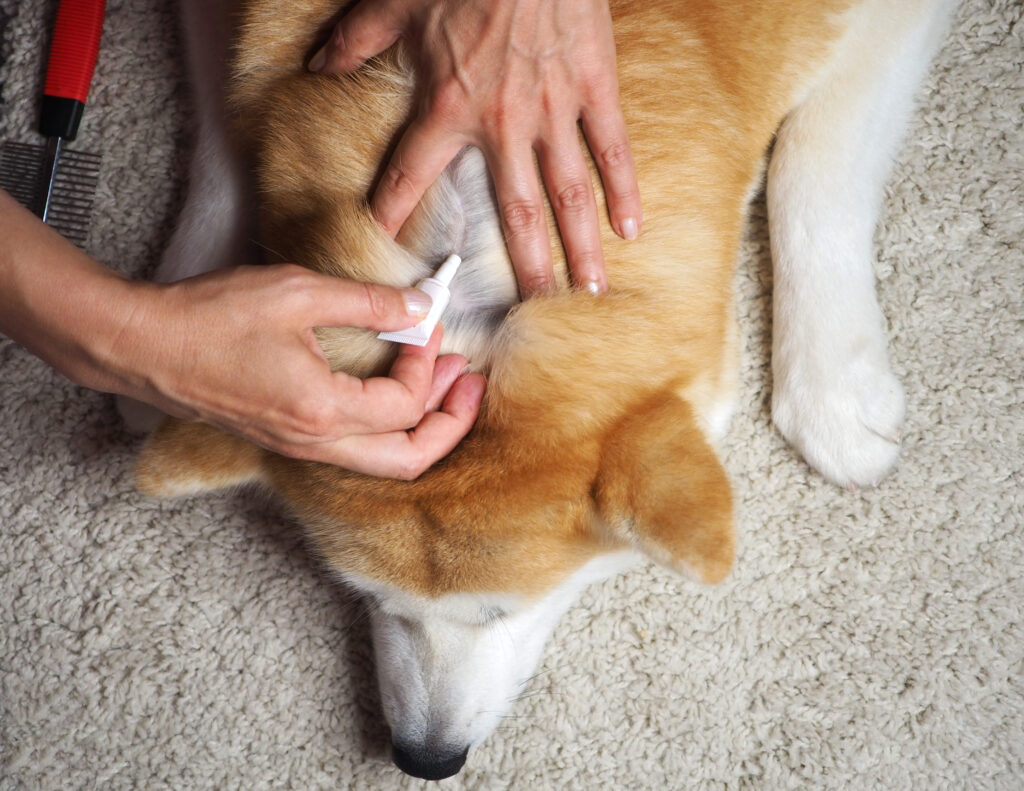We understand the bond you share with your pets and the importance of keeping them healthy and happy. This blog is dedicated to a question many pet owners have: Can pets get fleas even in the winter? We’ll explore this topic in detail, providing insights and information. If you need more advice or to schedule an appointment, feel free to contact us at Harlingen Veterinary Clinic in Belle Mead, New Jersey, at (908) 359-2000.
How Fleas Survive the Winter
When temperatures drop, you might think fleas won’t survive or at least they’ll be less active. However, these small insects are quite resilient and have adapted to continue their lifecycle even in colder weather. Let’s explore how fleas manage to survive during the winter months.
Fleas in Your Home
Your warm and cozy home provides an ideal environment for fleas during winter. These pests are attracted to the body heat and carbon dioxide exhaled by pets and humans. Once inside, they can live in various places:
- Carpet and Upholstery: Fleas can hide in the fibers of carpets and upholstery, where they lay eggs and multiply.
- Pet Bedding: One of their favorite spots to hide is your pet’s bedding, as it gives them easy access to their host.
- Cracks and Crevices: Fleas can also find shelter in small cracks and crevices around the house.
Outdoor Survival Strategies
Even though fleas prefer warmer temperatures, they have survival mechanisms for colder weather, too:
- Microclimates: They find microclimates or warmer spots like animal nests, piles of leaves, or even under your porch. These areas provide enough insulation and warmth for fleas to survive.
- Larvae and Pupae: Flea larvae and pupae can remain dormant in colder temperatures and hatch when conditions become favorable.
- Adult Fleas: Some adult fleas can survive outdoors in winter, especially in milder climates or during brief warm spells.
Adaptability
Fleas have evolved to withstand various environmental conditions. In winter, their lifecycle may slow down, but they do not completely die off. This adaptability makes year-round flea control essential for dogs and cats, along with maintaining a clean home environment.
Preventing Winter Flea Infestations
Just because it’s cold outside doesn’t mean you can forget about fleas. Here are some steps to keep your home and pets flea-free during the winter:
- Regular Cleaning: Vacuum your home frequently, especially areas where your pet spends a lot of time. This can help remove flea eggs and larvae from your environment.
- Pet Bedding: Wash your pet’s bedding regularly in hot water to kill any flea eggs or larvae.
- Year-Round Flea Treatments: Continue using flea prevention treatments on your pets throughout the year. Consult with our team at Harlingen Veterinary Clinic for the best options.
- Check Your Pets Regularly: Even in winter, check your pet’s coat for fleas or flea dirt. A regular check can help catch an infestation early.
The Importance of Flea Control: Health Risks of Fleas to Pets
Fleas are not just a nuisance; they can pose health risks to your pets:
- Flea Allergy Dermatitis: Many pets are allergic to flea bites, which can cause severe itching and discomfort.
- Tapeworms: Fleas can carry tapeworm larvae. If your pet ingests a flea while grooming, they can become infected with tapeworms.
- Anemia: In severe cases, especially in young or small pets, a heavy flea infestation can lead to anemia from blood loss.
Remember, preventing fleas is easier than treating an infestation. Regular flea control and home maintenance can save your pet from discomfort and various health risks.
FAQs About Fleas in Winter
Q: Can fleas live on humans?
A: Fleas prefer animal hosts but can bite humans, causing itching and discomfort.
Q: Do fleas die off in the cold?
A: Fleas do not survive well in extreme cold, but they can thrive in your warm home or find spots outdoors that protect them from the cold.
Q: How can I tell if my pet has fleas?
A: Look for signs like excessive scratching, red or irritated skin, and flea dirt (small black specks) in your pet’s coat.
If you have more questions or need assistance, please call Harlingen Veterinary Clinic at (908) 359-2000. Our team is ready to provide the information and support you need to keep your pet healthy.





